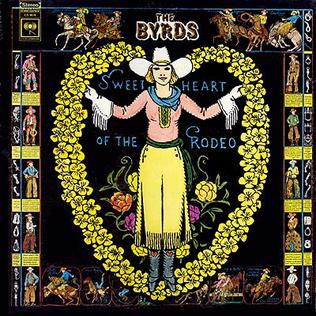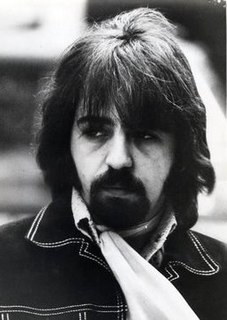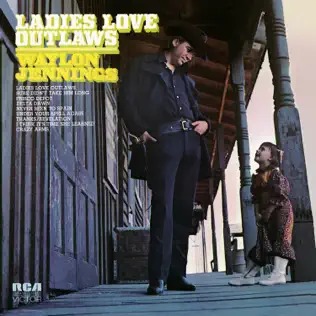
Elvis Aaron Presley was an American singer and actor. Regarded as one of the most significant cultural icons of the 20th century, he is often referred to as the "King of Rock and Roll" or simply "the King".
Rock music is a broad genre of popular music that originated as "rock and roll" in the United States in the early 1950s, and developed into a range of different styles in the 1960s and later, particularly in the United Kingdom and in the United States. It has its roots in 1940s and 1950s rock and roll, a style which drew heavily on the genres of blues, rhythm and blues, and from country music. Rock music also drew strongly on a number of other genres such as electric blues and folk, and incorporated influences from jazz, classical and other musical styles. Musically, rock has centered on the electric guitar, usually as part of a rock group with electric bass, drums, and one or more singers. Usually, rock is song-based music usually with a 4/4 time signature using a verse–chorus form, but the genre has become extremely diverse. Like pop music, lyrics often stress romantic love but also address a wide variety of other themes that are frequently social or political.

The Beatles were an English rock band formed in Liverpool in 1960. With members John Lennon, Paul McCartney, George Harrison and Ringo Starr, they became regarded as the foremost and most influential music band in history. Rooted in skiffle, beat and 1950s rock and roll, the group were integral to pop music's evolution into an art form and to the development of the counterculture of the 1960s. They often incorporated classical elements, older pop forms and unconventional recording techniques in innovative ways, and later experimented with several musical styles ranging from pop ballads and Indian music to psychedelia and hard rock. As the members continued to draw influences from a variety of cultural sources, their musical and lyrical sophistication grew, and they were seen as an embodiment of the era's sociocultural movements.

Waylon Arnold Jennings was an American singer, songwriter, and musician. In 1958, Buddy Holly arranged Jennings's first recording session, and hired him to play bass. Jennings gave up his seat on the ill-fated flight in 1959 that crashed and killed Holly, J. P. "The Big Bopper" Richardson and Ritchie Valens. During the 1970s, Jennings was instrumental in the inception of Outlaw country movement, and recorded country music's first platinum album, Wanted! The Outlaws with Willie Nelson, Tompall Glaser, and Jessi Colter.
Country rock is a subgenre of popular music, formed from the fusion of rock and country. It was developed by rock musicians who began to record country-flavored records in the late-1960s and early-1970s. These musicians recorded rock records using country themes, vocal styles, and additional instrumentation, most characteristically pedal steel guitars. Country rock began with artists like Bob Dylan, the Byrds, Nitty Gritty Dirt Band, the Flying Burrito Brothers, Gram Parsons and others, reaching its greatest popularity in the 1970s with artists such as Emmylou Harris, the Eagles, Linda Ronstadt, Michael Nesmith, Poco and Pure Prairie League. Country rock also influenced artists in other genres, including the Band, Grateful Dead, Creedence Clearwater Revival, the Rolling Stones, and George Harrison's solo work. It also played a part in the development of Southern rock.

The Byrds were an American rock band, formed in Los Angeles, California in 1964. The band underwent multiple lineup changes throughout its existence, with frontman Roger McGuinn remaining the sole consistent member, until the group disbanded in 1973. Although they only managed to attain the huge commercial success of contemporaries like the Beatles, the Beach Boys, and the Rolling Stones for a short period in the mid-60s, the Byrds are today considered by critics to be nearly as influential as those bands. Their signature blend of clear harmony singing and McGuinn's jangly twelve-string Rickenbacker guitar was immediately absorbed into the vocabulary of popular music and has continued to be influential up to the present day.

Sweetheart of the Rodeo is the sixth album by American rock band the Byrds and was released on August 30, 1968, on Columbia Records. Recorded with the addition of country rock pioneer Gram Parsons, it became the first major album widely recognised as country rock, and represented a stylistic move away from the psychedelic rock of the band's previous LP, The Notorious Byrd Brothers. The Byrds had occasionally experimented with country music on their four previous albums, but Sweetheart of the Rodeo represented their fullest immersion into the genre thus far. The album was also responsible for bringing Parsons, who had joined the Byrds prior to the recording of the album, to the attention of a mainstream rock audience for the first time. Thus, the album can be seen as an important chapter in Parsons' personal and musical crusade to make country music fashionable for a young audience.

Outlaw country is a subgenre of American country music, most popular during the 1970s and early 1980s, sometimes referred to as the outlaw movement or simply outlaw music. The music has its roots in earlier subgenres like honky tonk and rockabilly and is characterized by a blend of rock and folk rhythms, country instrumentation and introspective lyrics. The movement began as a reaction to the slick production and popular structures of the Nashville sound developed by record producers like Chet Atkins.
Discography is the study and cataloging of published sound recordings, often by specified artists or within identified musical genres. The exact information included varies depending on the type and scope of the discography, but a discography entry for a specific recording will often list such details as the names of the artists involved, the time and place of the recording, the title of the piece performed, release dates, chart positions, and sales figures.

Clarence White, was an American bluegrass and country guitarist and singer. He is best known as a member of the bluegrass ensemble the Kentucky Colonels and the rock band the Byrds, as well as for being a pioneer of the musical genre of country rock during the late 1960s.

"Your Cheatin' Heart" is a song written and recorded by country music singer-songwriter Hank Williams in 1952, regarded as one of country's most important standards. Country music historian Colin Escott writes that "the song – for all intents and purposes – defines country music." He was inspired to write the song while driving with his fianceé from Nashville, Tennessee to Shreveport, Louisiana. After describing his first wife Audrey Sheppard as a "Cheatin' Heart", he dictated in minutes the lyrics to Billie Jean Jones. Produced by Fred Rose, Williams recorded the song on his last session at Castle Records in Nashville, Tennessee, on September 23.

"I Can't Stop Loving You" is a popular song written and composed by country singer, songwriter, and musician Don Gibson, who first recorded it on December 30, 1957, for RCA Victor Records. It was released in 1958 as the B-side of "Oh, Lonesome Me", becoming a double-sided country hit single. At the time of Gibson's death in 2003, the song had been recorded by more than 700 artists.
Delbert McClinton is an American blues rock and electric blues singer-songwriter, guitarist, harmonica player, and pianist.
"Corrine, Corrina" is a 12-bar country blues song in the AAB form. "Corrine, Corrina" was first recorded by Bo Carter. However, it was not copyrighted until 1932 by Armenter "Bo Carter" Chatmon and his publishers, Mitchell Parish and J. Mayo Williams. The song is familiar for its opening verse:

"I Saw the Light" is a country gospel song written by Hank Williams. Williams was inspired to write the song while returning from a concert by a remark his mother made while they were arriving in Montgomery, Alabama. He recorded the song during his first session for MGM Records, and released in September 1948. The song is set to the tune of the traditional Scottish folk tune "Bonnie Charlie", also commonly known as "Will ye no come back again?". Williams' version did not enjoy major success during its initial release, but eventually it became one of his most popular songs and the closing number for his live shows. It was soon covered by other acts, and has become a country gospel standard.

Ladies Love Outlaws is a country music album by Waylon Jennings, released on RCA Records in 1972. Together with Jennings' previous album Good Hearted Woman, it marks his transition toward his Outlaw Country image and style. "Ladies Love Outlaws" coined the use of the term "Outlaw" to refer to the country music subgenre, which was developing at the time of its release.

Johnny Cash was an American singer-songwriter, guitarist, actor, and author. He is one of the best-selling music artists of all time, having sold more than 90 million records worldwide. Although primarily remembered as a country music icon, his genre-spanning songs and sound embraced rock and roll, rockabilly, blues, folk, and gospel. This crossover appeal won Cash the rare honor of being inducted into the Country Music, Rock and Roll, and Gospel Music Halls of Fame.
"Suspicions" is a country music song. It was originally recorded and released as a single in 1979 by Eddie Rabbitt from his album Loveline; his version was a Number One hit on the Billboard country music charts and a Top 20 hit on the Billboard Hot 100. The song saw renewed popularity in late 2007-early 2008, when Tim McGraw recorded and released a cover version on his album Let It Go.

The Troublemaker is the twentieth studio album by country singer and songwriter Willie Nelson. When Nelson refused to sign an early extension of his contract with RCA in 1972, the label decided not to release any further recordings. Nelson hired Neil Reshen as his manager, and while Reshen negotiated with RCA, Nelson moved to Austin, Texas, where the ongoing hippie music scene at the Armadillo World Headquarters renewed his musical style. In Nashville, Nelson met producer Jerry Wexler, vice president of Atlantic Records, who was interested in his music. Reshen solved the problems with RCA and signed Nelson with Atlantic Records as their first country music artist.

"Night Life" is a song written by country music singer-songwriter Willie Nelson. Nelson was inspired to write the song during one of his trips from his home in Pasadena, Texas, to his work, singing at the Esquire Ballroom in Houston.














